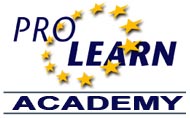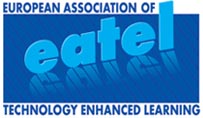COOPER
| What | Workshop |
|---|---|
| When |
2007-09-17 from 09:00 to 17:30 |
| Where | Crete, GR |
| Contact Email | iofciu |
| Add event to calendar |
|
The workshop focuses on current research trends in project-oriented cooperative learning solutions that aim at facilitating more dynamic and realistic learning scenarios, centered on the “learning by doing” approach.
1st International Workshop on
Collaborative Open Environments for Project-Centered Learning
held in conjunction with the
2nd European Conference on
Technology Enhanced Learning
Crete, Greece, September 17/18, 2007
Background
More and more, in an environment characterized by high mobility of students,
lecturers and workforce and by the dynamics of multinational companies,
“classes” or “students’ teams” are composed of persons with
different competencies and backgrounds (even cultural differences may play a
relevant role). This feature is considered as a valuable pedagogical addition
for developing the multidisciplinary attitude of the learner. Such working
environments will become more and more relevant in industry, with increasing
distribution of multinational companies all over the world and with extensive
adoption of partnerships and outsourcing. Increasingly, project-centered
teaching approaches, often in the context of workplace learning, are adopted
in the case of scientific and technical studies, where teams rather than
individual students will work on a given project and where teachers’ support
will often be substituted by interaction with a small group of advisors and
tutors, possibly coming from different (remote) institutions and providing
different competencies and approaches.
Research and development in project-oriented environments are focused upon the
problem of creating and managing virtual teams of persons with heterogeneous
backgrounds and competencies, of assessing their entry-level skills and their
‘scientific growth’, of coordinating their collaboration as well as
facilitating their personalized growth, and even of following them up after
the end of their formal participation in the learning activities, when they
constitute an alumni community. This approach is built upon project-centered
learning and social network learning situation, which is seen as an important
mechanism for breaking distance barriers and making effective use of
e-learning technology.
The scenarios, approaches, infrastructures and methodologies help
institutions, universities and companies to establish new innovative
project-centered study programs in information technology and related fields.
Extensive case studies among several education and training institutions
brought up the following most important technical requirements in
collaborative project-oriented scenarios:
- Management of virtual teams: Defining a set of team management processes
that are most suitable for supporting project-centered learning. Process
descriptions reflect user’s requirements. Besides project management,
processes have the goal of as building as well a social community among
team members and the consolidation of project results as a permanent
asset, both for the administrating institution and for the participating
individuals.
- Knowledge sharing in virtual teams: Creating knowledge sharing and
recommendation services to facilitate collaborative teamwork processes, by
supporting students in finding suitable experts, peers and resources in
project-centered learning situations, and to provide advanced
opportunities for sharing of results, knowledge and context in these
groups. The solution provides semantically rich collaborative
recommendations in such social networks, supports competency profiling and
portfolios, and builds upon and extends collaborative and content based
recommendation algorithms including latent semantic analysis for
additional related material and previous learning situations.
- Pedagogical scenarios and assessment in project-centered learning:
Defining pedagogical scenarios and assessment tools to support competency
building and competency assessment in heterogeneous virtual project teams.
Coherent pedagogical scenarios are needed, that are appropriate for
competency enhancement and assessment in this context – also by
exploiting social networks and networked learning which also partly
contribute to TEL.
- Infrastructures supporting project-centered learning: Developing a
web-based infrastructure with a set of telecommunication tools to support
the distant synchronous and asynchronous cooperation in a distributed
virtual team.
Call for Papers
The workshop focuses on current research trends in project-oriented
cooperative learning solutions that aim at facilitating more dynamic and
realistic learning scenarios, centered on the “learning by doing”
approach. The workshop solicits submissions of high-quality research papers
that propose solutions to the issues identified above. It advocates for
approaches and environments for supporting knowledge co-construction, sharing
and re-use, including for example functionalities for recommendations of
peers, experts and resources, based on past learning experiences and
interactions, and mechanisms to exchange and share information and artifacts
in distributed dynamic social networks.
The workshop aims at bringing together scientists and engineers who work on
researching, designing and/or developing the abovementioned solutions, as well
as practitioners who evaluate them in diverse real environments. Particular
interest will be given to approaches built according to well-established
pedagogical principles. Topics of interest include (but are not limited to)
the following:
- Collaborative teamwork processes
- Pedagogical scenarios for collaborative learning in virtual teams
- Assessment procedures for competency building in virtual teams
- Knowledge sharing services and trust management for collaborative teamwork processes
- Recommendation services for collaborative teamwork processes
- Application of language technologies, such as latent semantic analysis, in knowledge management, including finding resources and experts in collaborative environments
- Infrastructures for cooperative teamwork processes
- Integration of synchronous and asynchronous components to support teamwork
- Case studies and evaluation methodologies
- User profiling and awareness issues in tools supporting teamwork
Workshop presentations will only include full papers (up to 10 pages).
Authors may submit full papers as well as extended abstracts (approx. 2 pages)
and draft papers that will subsequently (upon preliminary acceptance) be
extended and resubmitted. They must correspond to the EC-TEL conference format
requirements, in Springer LNCS (http://www.springer.de/comp/lncs/index.html).
All accepted papers must be presented by one of the authors. Workshop
attendees need to register for the main EC-TEL conference.
All accepted papers will be published online.
All submissions should be sent by e-mail to [email protected].
Workshop Structure
It is foreseen that the workshop will be highly
interactive and engage participants in fruitful discussions on its topics.
Towards this aim, accepted papers will be first clustered according to the
topics addressed (3-4 such clusters are foreseen for a 1-day workshop). Each
such session will contain no more than 3 papers, each of them to be presented
by one of its authors (workshop participants will be handed out the full
versions of the papers). The duration of the presentation of each full paper
will be about 20 minutes plus 10 minutes for discussions. It is expected that
the duration of each workshop’s session will be around 90minutes. Authors
will be asked to follow a structured template for their presentation, focusing
on the problem addressed in their approach, the methodology followed, and the
results of their work. Each workshop session will be coordinated by a
facilitator (session chair), who will be an expert on the topics discussed in
the particular session. There will be and invited speaker at the beginning of
the workshop who will give an influential talk (keynote speech) about their
work and/or vision.A closing panel session, a panel summarizing the outcome of
the workshop and determining future activities has been also foreseen.
Important Dates
July 15, 2007: workshop paper submission deadline
August 08, 2007: notification of workshop paper acceptance
August 15, 2007: workshop paper camera-ready submission
Workshop dates: September 17 or 18, 2007
Organization
Workshop Chairs
- Stefano Ceri, Politenico di Milano, Italy
- Wolfgang Nejdl, University of Hannover & L3S, Germany
- Jan van Bruggen, OPEN University, Nederlands
Program Committee
- Stefano Ceri, Politenico di Milano, Italy
- Wolfgang Nejdl, University of Hannover & L3S, Germany
- Jan van Bruggen, OPEN University, Nederlands
- Tereza Iofciu, University of Hannover & L3S, Germany
- Ulrike Cress, IWM, Germany
- Mariagiovanna Sami, Universita della Svizzera Italiana, Switzerland
- Valentin Cristea, Politechnica of Bucharest, Romania
- Peter Dolog, Aalborg University, Denmark
- Haake, FernUniversitain Hagen, Germany
- Denis Gillet, EPFL, Switzerland





